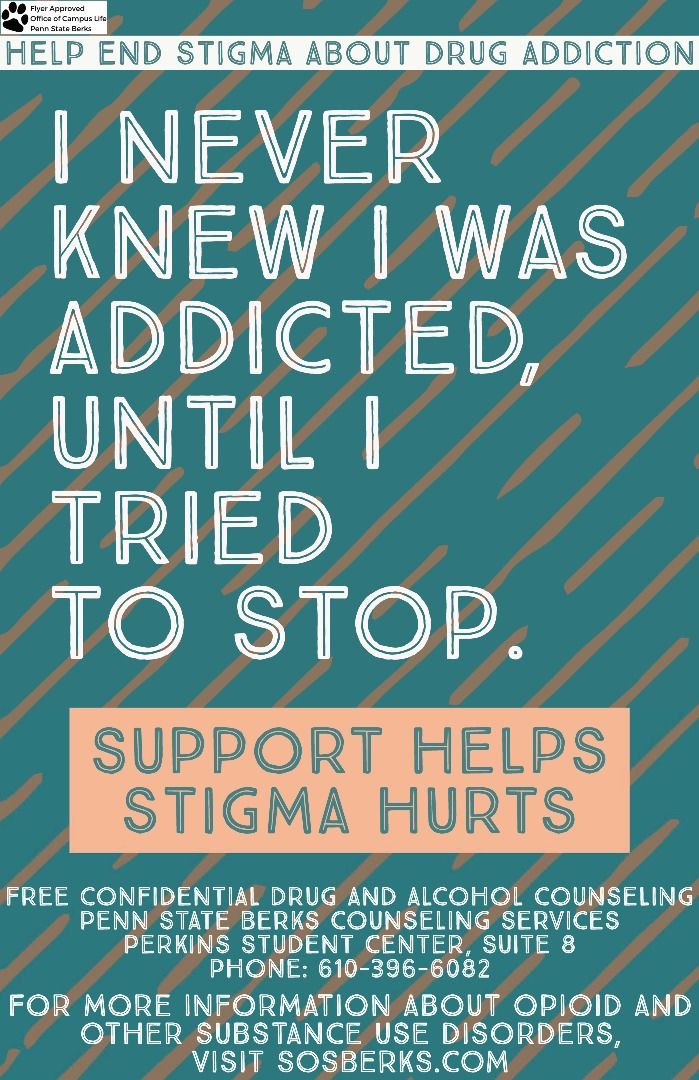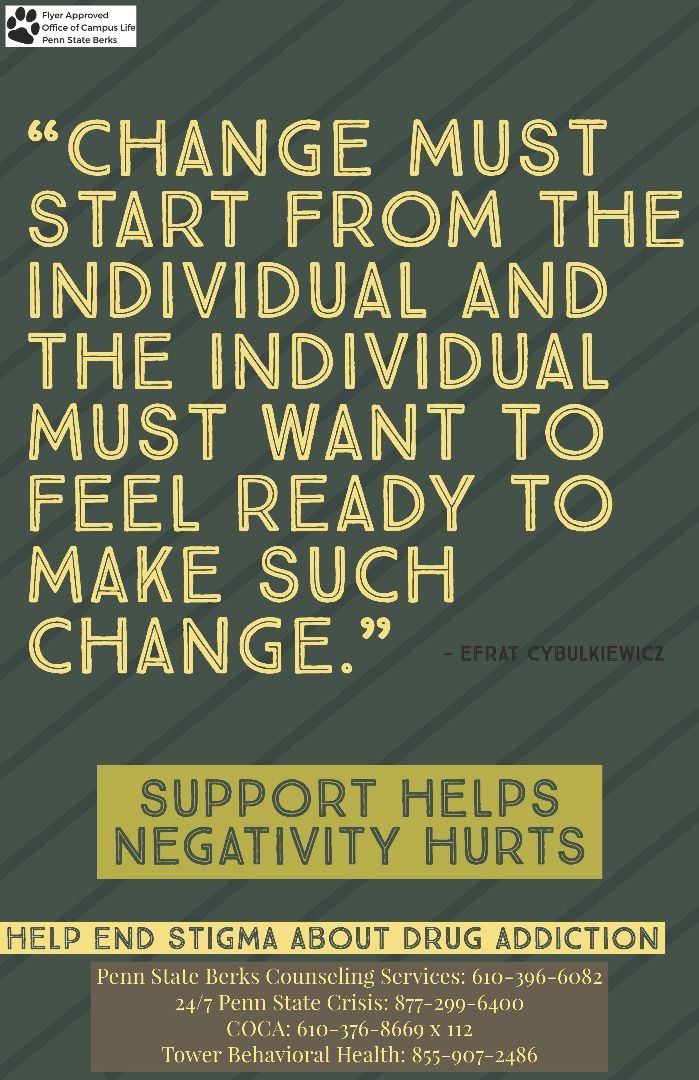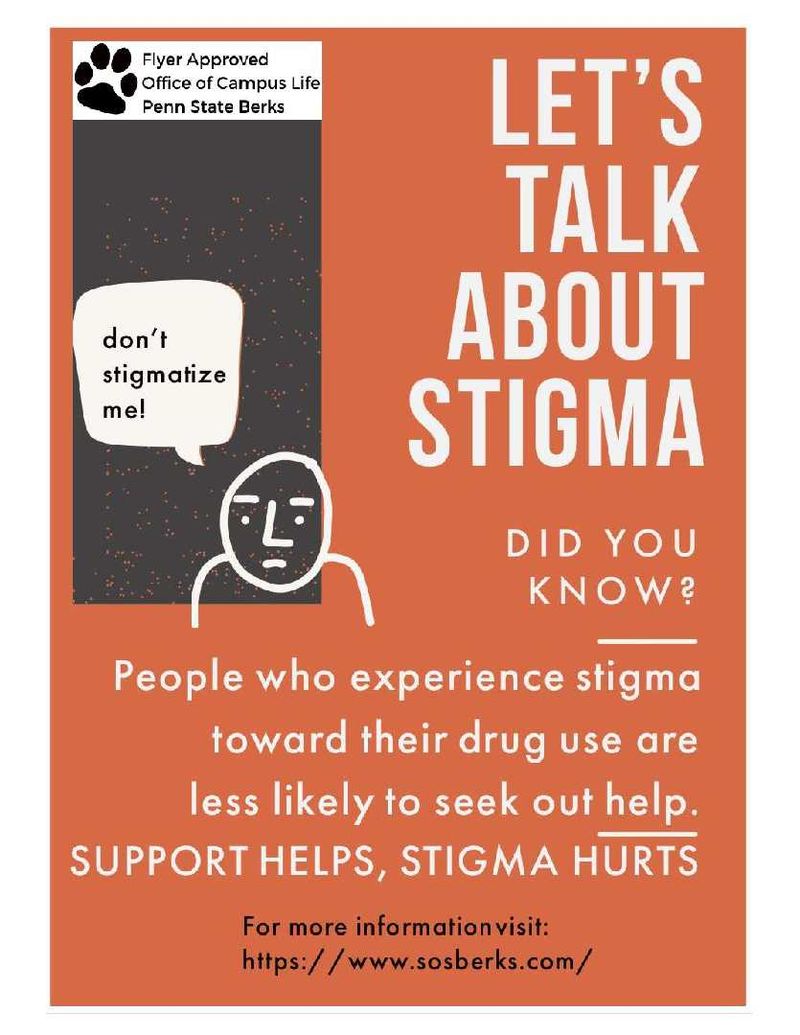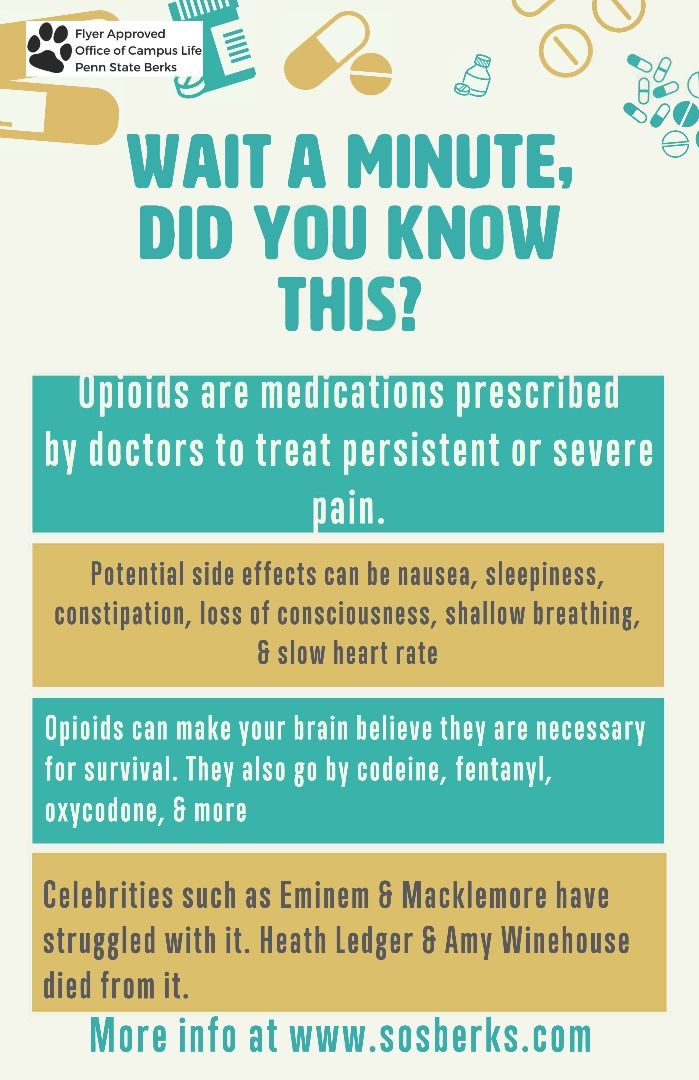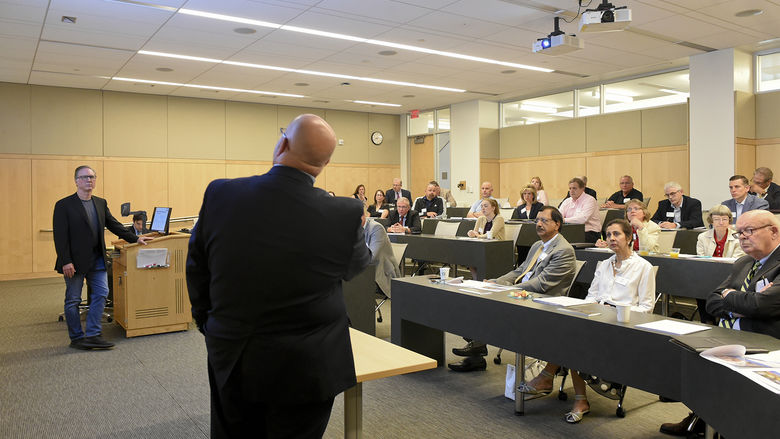
WYOMISSING, Pa. — Did you know that people who experience stigma toward their drug use are less likely to seek out help? And did you know that opioids are medications prescribed by doctors to treat persistent or severe pain? These are just two of the messages that are part of a Penn State Berks awareness and educational campaign on opioid addiction. The campaign is intended to change attitudes among faculty members and students and to train students to administer naloxone, a drug that counters the effects of opioid overdose.
“Addiction is a brain disease, but it still carries a lot of stigma,” said Jennifer Murphy, associate professor of criminal justice, who is leading the campaign along with Brenda Russell, professor of applied psychology. “Many people do not understand how addiction works; they see it as a moral flaw. We hope to educate students at Penn State Berks about the reality of addiction and how naloxone can save lives.”
Penn State Berks was one of 13 institutions of higher education included in the nearly $1 million that was awarded by the PA Department of Drug and Alcohol Programs on behalf of the federal Substance Abuse and Mental Health Services Administration to prevent and reduce opioid use among college students and to train them in the administration of naloxone. At a January press conference about the grant, Gov. Tom Wolf said, “Educating college students on the risk of opioid use, and training institutions of higher learning on how to administer naloxone are two ways we can save lives and lessen the impact of this crisis.”
The Berks team received their funding in January 2020 but had to postpone the campaign due to the onset of the COVID-19 pandemic. The campaign, which will now run through the end of October, includes posters on campus, messages on the college’s electronic bulletin boards and social media posts. In addition, Murphy and Russell used part of the funds to evaluate the attitudes of faculty and staff members before the awareness campaign began, and they will evaluate attitudes again when the campaign ends. The goal, they said, is to see if the campaign will change negative attitudes.
In prior work, Murphy and Russell had already put several programs into place on campus to address the prevention of opioid use among college students and to provide naloxone training on campus. For example, in December 2019, they invited representatives from the Caron Treatment Centers — an internationally recognized not-for-profit dedicated to addiction and behavioral healthcare treatment, research, prevention and medical education, located in Wernersville, Pennsylvania — to educate the campus community about addiction.
During their visit, Douglas Tieman, president and chief executive officer of Caron Treatment Centers, spoke at a faculty seminar and gave a demonstration on the use of naloxone, with assistance from a representative of the Council on Chemical Abuse. Students also received similar training in the spring semester. Murphy and Russell conducted pre- and post-test evaluations of the participants’ addiction knowledge and attitudes and found that the participants showed reduced stigma after receiving training. In addition, faculty members and students who attended the seminars received a naloxone kit.
During the last year, Murphy and Russell also have been working to assess police officers’ knowledge about addiction and attitudes toward people who use opioids. Their study has three specific goals — to assess addiction knowledge among police officers and the level of stigma police officers hold toward people who use drugs, to identify the individual-level characteristics of police officers that contribute to their levels of addiction knowledge and stigma, and to use the survey results to identify the need for an educational/intervention tool that could be developed and tested to increase addiction knowledge and reduce stigma levels among police officers.
In addition, Murphy published a book, titled "Illness or Deviance? Drug Courts, Drug Treatment, and the Ambiguity of Addiction," in which she investigates various perspectives on drug addiction. The book examines a drug court, a diversion program where people who are arrested and in need of drug treatment can avoid incarceration, and affiliated drug treatment programs, to see how addiction was labeled and managed in each setting.
Russell’s other research focuses on female offenders and intimate partner violence, and she has published books on this topic: "Intimate Partner Violence and the LGBT+ Community" (Springer, 2020); "The Battered Woman Syndrome as a Legal Defense: History, Effectiveness, and Implications" (2010); and "Perceptions of Female Offenders" (2013).
